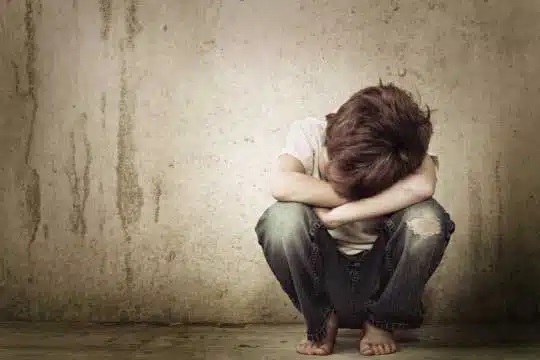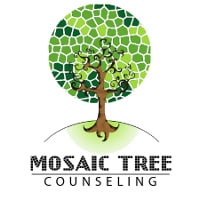The Child Abuse Prevention and Treatment Act (CAPTA) 2010. (2018). Retrieved from HERE.
Mosaic Tree Counseling
You don’t have to feel like this. We can help with Abuse and Neglect
Request More InformationChild Abuse & Neglect
The Federal Child Abuse Prevention and Treatment Act (CAPTA), (42 U.S.C.A. §5106g), as amended and reauthorized by the CAPTA Reauthorization Act of 2010, defines child abuse and neglect as, at minimum: “Any recent act or failure to act on the part of a parent or caretaker which results in death, serious physical or emotional harm, sexual abuse or exploitation; or an act or failure to act which presents an imminent risk of serious harm.” Most Federal and State child protection laws primarily refer to cases of harm to a child caused by parents or other caregivers; they generally do not include harm caused by other people, such as acquaintances or strangers. Some State laws also include a child’s witnessing of domestic violence as a form of abuse or neglect.

Physical abuse is non-accidental physical injury (ranging from minor bruises to severe fractures or death) as a result of punching, beating, kicking, biting, shaking, throwing, stabbing, choking, hitting (with a hand, stick, strap, or other object), burning, or otherwise harming a child, that is inflicted by a parent, caregiver, or other person who has responsibility for the child. Such injury is considered abuse regardless of whether the caregiver intended to hurt the child. Physical discipline, such as spanking or paddling, is not considered abuse as long as it is reasonable and causes no bodily injury to the child. Neglect is the failure of a parent, guardian, or other caregiver to provide for a child’s basic needs. Neglect may be physical, medical, educational, or emotional. For example, physical neglect pertains to failure to provide necessary food or shelter, or lack of appropriate supervision.
Medical neglect includes failure to provide necessary medical or mental health treatment. Educational neglect includes failure to educate a child or attend to special education needs and emotional neglect includes inattention to a child’s emotional needs, failure to provide psychological care, or permitting the child to use alcohol or other drugs. Other major forms of child abuse include: sexual and emotional abuse, abandonment, and substance abuse. Sexual abuse are activities by a parent or caregiver such as fondling a child’s genitals, penetration, incest, rape, sodomy, indecent exposure, and exploitation through prostitution or the production of pornographic materials (APA, 2018).
Medical neglect includes failure to provide necessary medical or mental health treatment. Educational neglect includes failure to educate a child or attend to special education needs and emotional neglect includes inattention to a child’s emotional needs, failure to provide psychological care, or permitting the child to use alcohol or other drugs. Other major forms of child abuse include: sexual and emotional abuse, abandonment, and substance abuse. Sexual abuse are activities by a parent or caregiver such as fondling a child’s genitals, penetration, incest, rape, sodomy, indecent exposure, and exploitation through prostitution or the production of pornographic materials (APA, 2018).
Emotional abuse (or psychological abuse) is a pattern of behavior that impairs a child’s emotional development or sense of self-worth. This may include constant criticism, threats, or rejection, as well as withholding love, support, or guidance (When Is It Emotional Abuse, 2016). With abandonment a child is considered to be abandoned when the parent’s identity or whereabouts are unknown, the child has been left alone in circumstances where the child suffers serious harm, or the parent has failed to maintain contact with the child or provide reasonable support for a specified period of time. Substance abuse is an element of the definition of child abuse or neglect in many States. Circumstances that are considered abuse or neglect in some States include the following: Prenatal exposure of a child to harm due to the mother’s use of an illegal drug or other substance, manufacture of methamphetamine in the presence of a child, selling, distributing, or giving illegal drugs or alcohol to a child, use of a controlled substance by a caregiver that impairs the caregiver’s ability to adequately care for the child (Child Welfare Information Gateway, 2016).
Sexual abuse is unwanted sexual activity, with perpetrators using force, making threats or taking advantage of victims not able to give consent. Most victims and perpetrators know each other. Immediate reactions to sexual abuse include shock, fear or disbelief. Long-term symptoms include anxiety, fear or post-traumatic stress disorder. While efforts to treat sex offenders remain unpromising, psychological interventions for survivors, especially group therapy appears effective (APA, 2018).
Strategies for treating the abused child are varied and are used as appropriate to the child’s presenting problems. Recommended treatment approaches include cognitive-behavioral strategies graduated exposure to aspects of the abusive experience relaxation training education regarding abuse process and effects of abuse skills training supportive strategies teaching self-protective strategies behavioral strategies, parent training, clarification of responsibility, blame and offender’s behavior. Treatment should be abuse-focused (i.e., help the child adjust to the experience of having been abused), treatment should include an educational component, treatment should address the child’s relationships with other family members and the community, treatment should be directed to both offending and non-offending caregivers as well as toward the child. We have many therapists trained in trauma-based therapy, which may include individual therapy, family therapy, creative art therapy, sand tray therapy, and more.
List of Citations
Therapy Modalities
Abuse & Neglect
ADHD
Anxiety
Bipolar
Career Counseling
Communication Difficulties
Couples Therapy
Depression
Eating Disorders
Employee Assistance
Impulsive Behavior
Obsessive Compulsive Disorder (OCD)
Oppositional Defiant Disorder (ODD)
Play Therapy
Posttraumatic Stress Disorder (PTSD)
Self Esteem
Self Mutilation
Shop
Social Skills
Request More Information

